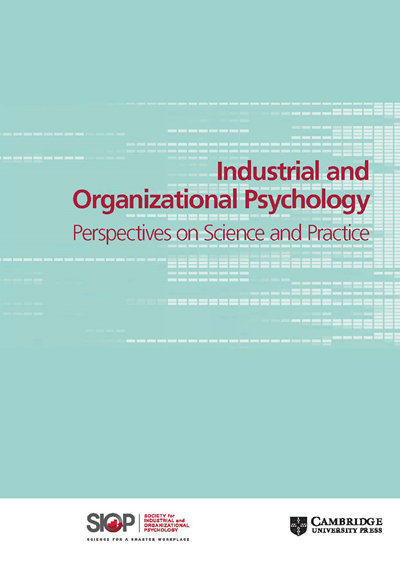Bringing polycultural organizations to life: A network analytic strategy
IF 4.3
3区 心理学
Q1 PSYCHOLOGY, APPLIED
Industrial and Organizational Psychology-Perspectives on Science and Practice
Pub Date : 2023-08-31
DOI:10.1017/iop.2023.44
引用次数: 0
Abstract
Introduction The emerging polyculturism perspective seeks to address inclusion shortcomings by emphasizing the interconnectedness of the workforce. With repeated interactions greater trust is engendered, promoting pro-social behaviors that benefit the entire organization (Pentland, 2012). This is consistent with social network practices where informational advantage is gained by tapping into under-connected pockets of the organization, allowing for increased flow of knowledge and mutual influence. As such, inclusion efforts may be amplified by striving to gain greater connectivity between employees of various backgrounds and through repeated interactions of disconnected groups. The goal is to break down barriers, increase awareness and cooperation, reduce perceived group differences, and create a more inclusive culture. This is how social network analysis, a data-driven approach to understanding the relationships between individuals and groups within organizations, measuring the flow of resources, information, and influence (Borgatti et al., 2018), can support polyculturism in increasing inclusion in a measurable way.将多元文化组织带入生活:网络分析策略
引言新兴的多元文化主义视角试图通过强调劳动力的相互联系来解决包容性不足。通过反复的互动,产生了更大的信任,促进了有利于整个组织的亲社会行为(Pentland,2012)。这与社交网络实践是一致的,在社交网络实践中,通过挖掘组织中联系不足的口袋来获得信息优势,从而增加知识流动和相互影响。因此,通过努力在不同背景的员工之间建立更大的联系,并通过断开联系的群体的反复互动,可以扩大包容性努力。目标是打破障碍,提高认识和合作,减少感知到的群体差异,创造一种更具包容性的文化。这就是社交网络分析,一种数据驱动的方法,用于理解组织内个人和群体之间的关系,衡量资源、信息和影响力的流动(Borgatti et al.,2018),可以支持多元文化以可衡量的方式增加包容性。
本文章由计算机程序翻译,如有差异,请以英文原文为准。
求助全文
约1分钟内获得全文
求助全文
来源期刊

Industrial and Organizational Psychology-Perspectives on Science and Practice
PSYCHOLOGY, APPLIED-
CiteScore
7.70
自引率
10.10%
发文量
85
期刊介绍:
Industrial and Organizational Psychology-Perspectives on Science and Practice is a peer-reviewed academic journal published on behalf of the Society for Industrial and Organizational Psychology. The journal focuses on interactive exchanges on topics of importance to the science and practice of the field. It features articles that present new ideas or different takes on existing ideas, stimulating dialogue about important issues in the field. Additionally, the journal is indexed and abstracted in Clarivate Analytics SSCI, Clarivate Analytics Web of Science, European Reference Index for the Humanities and Social Sciences (ERIH PLUS), ProQuest, PsycINFO, and Scopus.
 求助内容:
求助内容: 应助结果提醒方式:
应助结果提醒方式:


